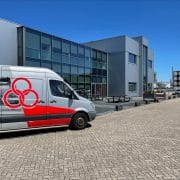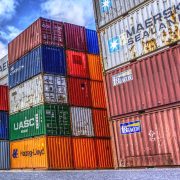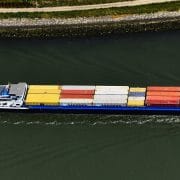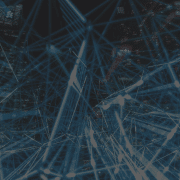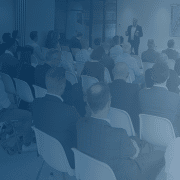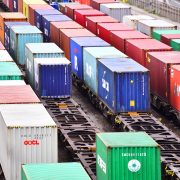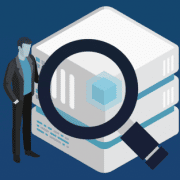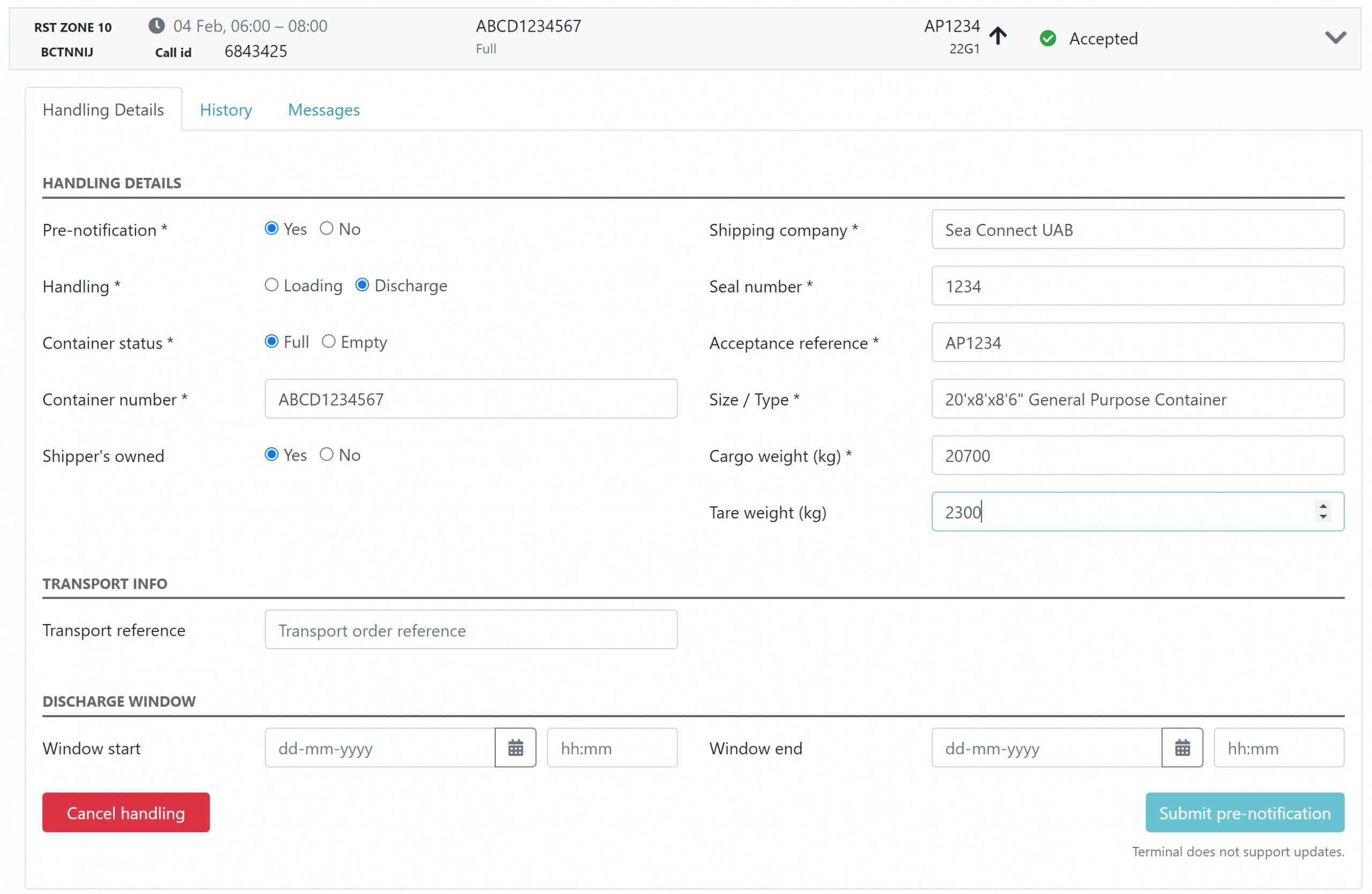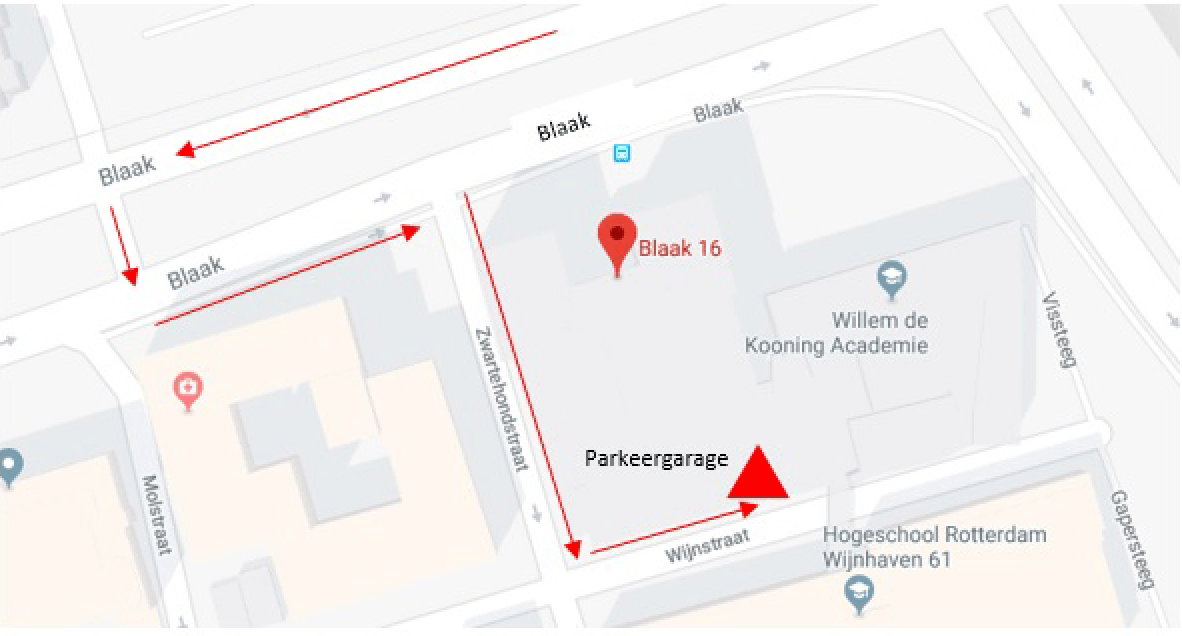Good organisation of hinterland transport is essential to the strength of the port of Rotterdam now and in the future. Digitalisation can help a lot in this regard. In the Data Fuel programme, Portbase will be working with the Rotterdam Port Authority, industry bodies and the business community to strengthen information exchange in the hinterland chain over the coming years. Vice President Commercial at the Rotterdam Port Authority, Matthijs van Doorn, and Portbase CEO Iwan van der Wolf together discuss the programme’s background and aims. “The first step towards improvement is transparency.”
“There is currently enormous pressure on the logistics chain”, begins Van Doorn, describing the current situation. Disruptions to the chain, for example due to Covid-19 lockdowns, the blocking of the Suez Canal and the war in Ukraine, have been coming thick and fast. Partly as a result, many deep-sea container ships are not keeping to their operating schedules. This is resulting in great unpredictability, both in the port and in the hinterland. “On top of that, container ships are getting bigger. Last year, 20 percent fewer calls resulted in 10 percent more cargo. Peaks are increasing. This presents significant operational challenges on the sea and land sides alike.”
“With Portbase as a data hub, we want to help
achieve the path to digital maturity in
hinterland transportation through smart services”
Growth path to digital maturity
“The first step towards improvement is transparency”, continues Van Doorn. Digitisation should help the fragmented hinterland market – in which everyone has a share of the information – work much more efficiently. Van Doorn sees a clear growth path ahead to help hinterland transportation planning move towards maturity step by step. Over the course of a number of years, this path would extend from transparency and getting the digital foundations in order, through optimisation in small experiments, to dynamic real-time planning per modality and finally integrated dynamic planning of all modalities. “Portbase provides the foundation for this, which we have been investing in for years. The Port Community System is the data hub of the port of Rotterdam. Based on this solid foundation, we want to continue working towards optimisation with the market.”
“We are very keen to capitalise on
opportunities together with the market”
Acting with the market
Van Doorn stresses the importance of acting together. “At one time, we at the port authority were looking to develop our own software, but we abandoned that idea. We are very keen to capitalise on opportunities together with the market. That’s also why we are putting time and energy into helping achieve the path to digital maturity in hinterland transportation through smart services with Portbase as a data hub.” One example is Nextlogic for integrated planning of containerised inland shipping. “We are investing in its development and incubation. At the same time, a large number of market participants are sticking their necks out by testing Nextlogic in practice and optimising it further. Together we are working on a system that doesn’t yet exist anywhere in the world. It is then up to the market to pay for its use based on the value it delivers. It is not the port authority’s job to exploit software solutions.”
“Thanks to the data in the PCS and access
to our large community, innovations
can be significantly accelerated”
From basic infrastructure to smart application
Van der Wolf explains how Portbase built the data hub. “We differentiate three layers within the Port Community System. The bottom layer is the basic infrastructure that makes sure the digital information exchange all proceeds smoothly, securely and reliably.” The middle layer comprises community services for efficient support of the core processes in the Dutch ports. “There are currently 44 different services. Hinterland Container Notification (HCN) for information exchange in hinterland transport is one of them.” The third, top layer is made up of the data and information services. “By reusing the data from the core processes (subject to permission from the owners), firms can develop smart applications based on this layer. Thanks to that data and access to our large community of approximately 5,000 companies with around 16,000 users, innovations can be significantly accelerated and we can provide a single connection to the entire market. Nextlogic, for example, uses HCN to obtain and provide feedback on the data required for integrated planning of container barge operations.”
Self-financing
Portbase is neutral and operates on a self-financing basis, says Van der Wolf. “The infrastructure – the bottom layer – is financed by our shareholders, the Rotterdam and Amsterdam port authorities. Participants pay for use of the community services – the middle layer – on a pro rata basis or, in the case of specific government services, the costs are covered by central government and the Harbour Master. The costs of smart data and information services in the top layer are entirely borne by the customers in question.”
Focus on the hinterland
Based on its position as the data hub of the port of Rotterdam, Portbase fully embraces the growth path towards digital maturity in hinterland transport outlined by Vice President Commercial Van Doorn of the Rotterdam Port Authority. Under the name Data Fuel, a multi-year improvement programme is in progress in partnership with the port authority, industry bodies and the business community to optimise information exchange throughout the hinterland chain. Its delivery should contribute substantially to making hinterland transport more efficient, cheaper, more secure and more sustainable. More and better data enables parties to optimise their planning and serves to reduce the length of time containers are static, improve turnaround times, increase utilisation rates and cut administrative and staff costs.
“Only together can we truly make
the hinterland chain stronger”
Guiding principles
The guiding principles for the implementation of Data Fuel are: Improve, Broaden, Deepen, Innovate and Trust. With the actions currently underway and in the pipeline (see: https://www.portbase.com/en/hinterland-program/), hinterland carriers should start to experience more value from the service HCN. Van der Wolf: “We are conducting this whole process transparently, together with the market. Working intensively with the hinterland carriers means they can give us the right input. Only together can we truly make the hinterland chain stronger.”

